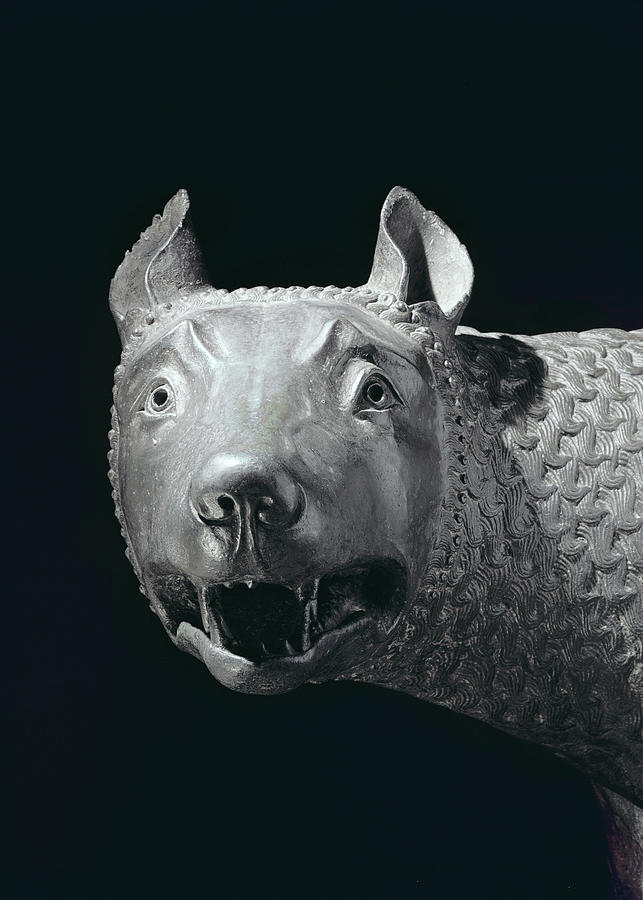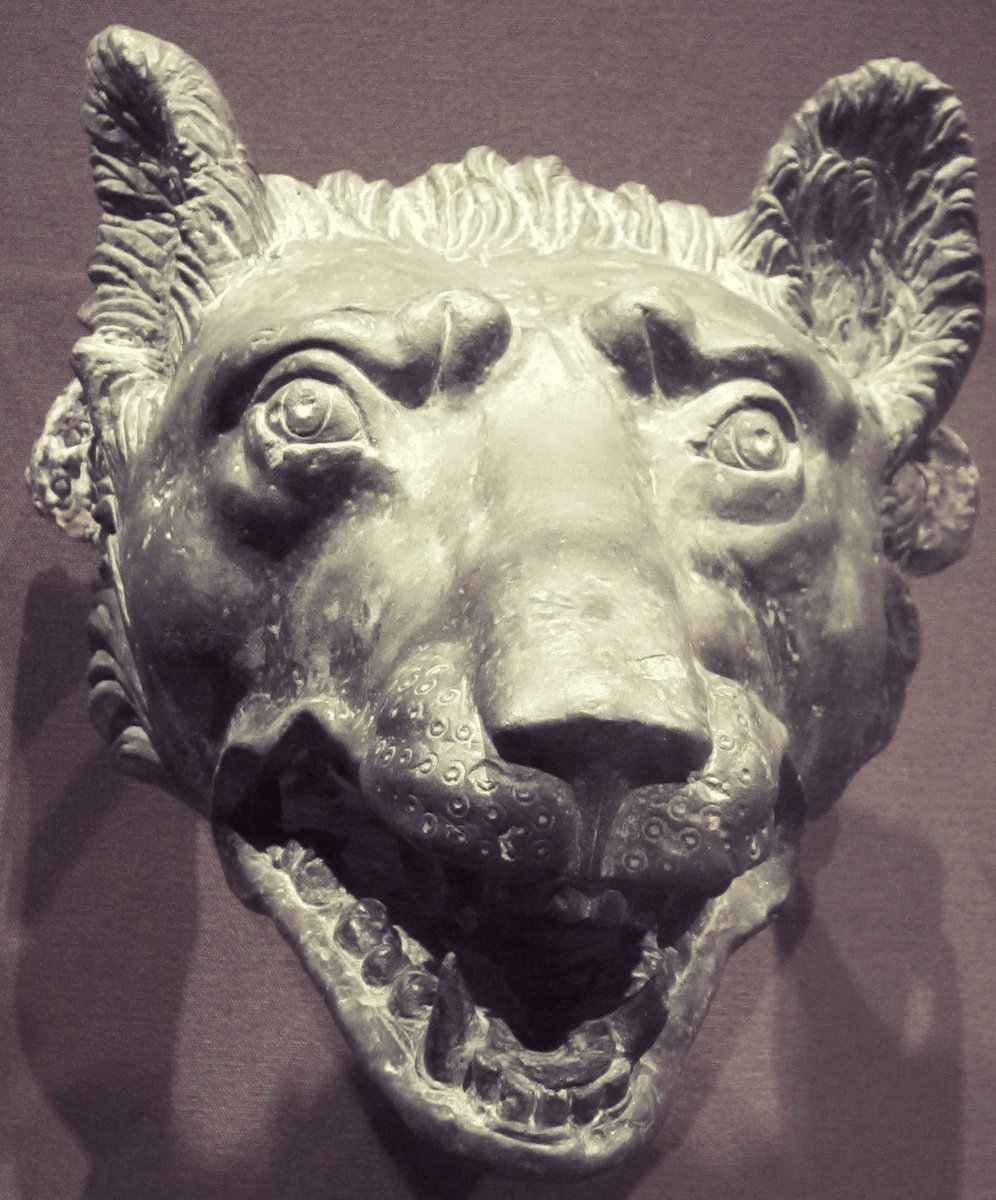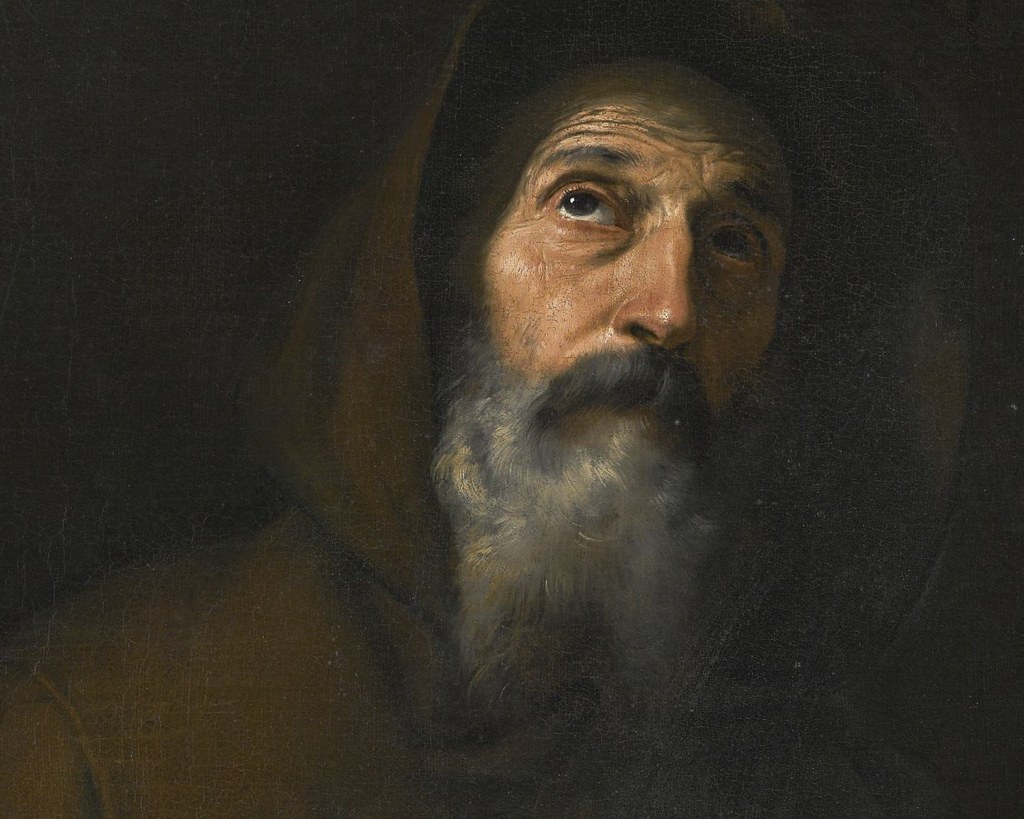A short thread of Latin quotations on wolves and human nature:
"The wolf may shed his coat but not his nature"
Lupus pilum mutat, non mentem
-Latin Maxim
"The wolf may shed his coat but not his nature"
Lupus pilum mutat, non mentem
-Latin Maxim
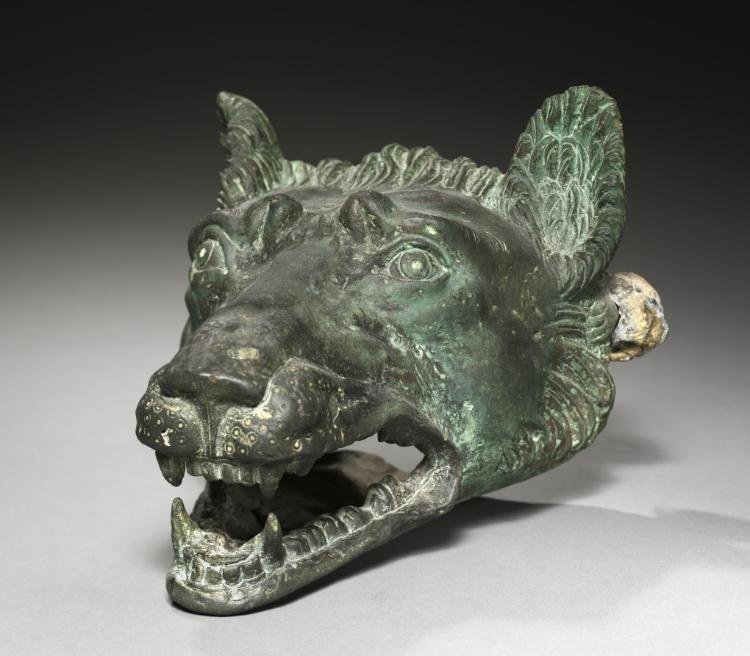
Bronze Wolf Head, Roman ca. 1-200 AD-at Cleveland Art Museum [1]
She-Wolf, bronze 5th c. BC (head detail) at Capitoline Museums, Rome [1]
"A man is a wolf rather than a man to another man, when he hasn't yet found out what he's like."
Lupus est homo homini, non homo, quom qualis sit non novit
-Plautus, Asinaria (The One With the Asses)
Lupus est homo homini, non homo, quom qualis sit non novit
-Plautus, Asinaria (The One With the Asses)
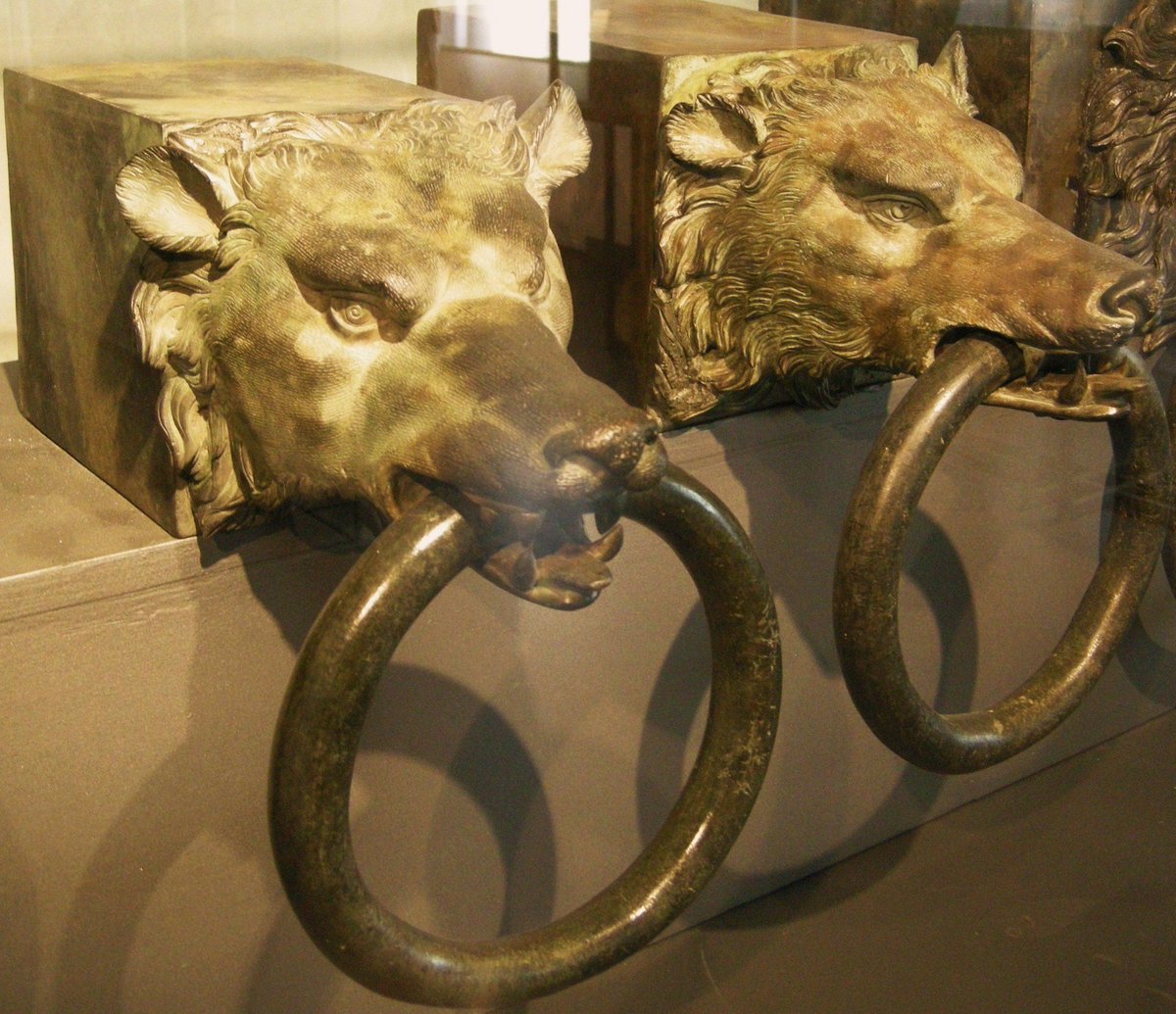
From Caligula's Nemi Navi (seconda nave):
Brass rings in the shaped of wolves. They're fitted to the cantilevered beams that supported each rowing position. [1]
Brass rings in the shaped of wolves. They're fitted to the cantilevered beams that supported each rowing position. [1]
i.e. "I'm in desperate trouble"
A frontal photo of the bronze wolf head, Roman ca. 1-200 AD-at Cleveland Art Museum [1]
A frontal photo of the bronze wolf head, Roman ca. 1-200 AD-at Cleveland Art Museum [1]
Detail of the mosaic depicting the She-wolf with Romulus and Remus, from Aldborough, about 300-400 AD at Leeds City Museum, UK [1]
"You may as well leave wolves among your sheep, than these (men) to guard your house."
(Ut mavelis) Lupos apud oves linquere, quam hos custodes domi
-Plautus, Pseudolus

(Ut mavelis) Lupos apud oves linquere, quam hos custodes domi
-Plautus, Pseudolus


A Roman bronze figure of a wolf standing alertly with gaping jaws (at two different profiles) circa 2nd century AD-sold at Christie's [1]
P.S. Latin word Versipellis i.e. "skin-changer", in certain texts mean "werewolf" but also man's "deceitfulness"
Ovid's versipellis, Jupiter turns Lycaon into a werewolf:
fit lupus et veteris servat vestigia formae
"He becomes a wolf, and retains traces of his former shape"
Ovid's versipellis, Jupiter turns Lycaon into a werewolf:
fit lupus et veteris servat vestigia formae
"He becomes a wolf, and retains traces of his former shape"
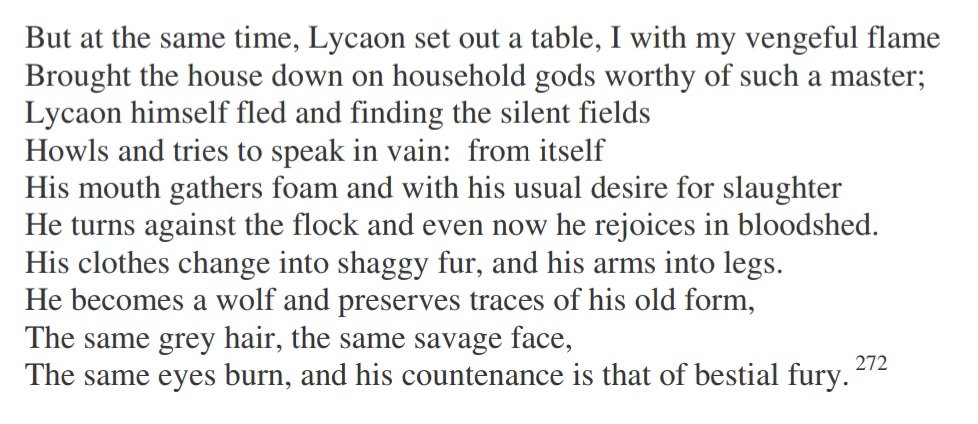
• • •
Missing some Tweet in this thread? You can try to
force a refresh

